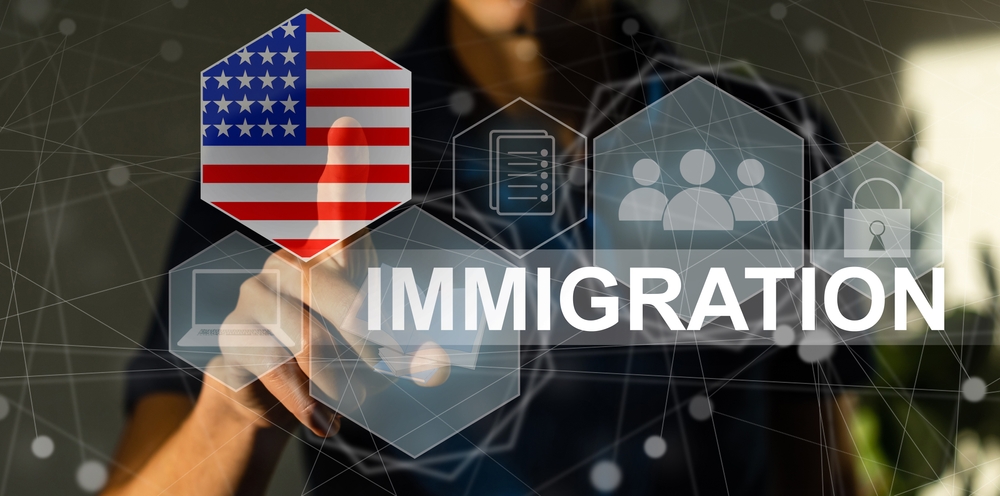Understanding how immigration policies have evolved in the wake of the global pandemic is essential for individuals, families, and professionals planning international moves. Governments around the world have revised regulations, introduced new protocols, and adjusted visa requirements to reflect public health priorities and economic recovery strategies.
These changes can significantly impact application timelines, eligibility criteria, and legal pathways to residency or citizenship. In this article, we explore Navigating Immigration Policies Post-Pandemic: Key Updates to help you stay informed and prepared. Whether you’re pursuing work, study, or family reunification, knowing what’s changed and why is critical to making informed decisions in this new global landscape.
Key Updates in Immigration Policies
The post-pandemic period has seen several notable updates in immigration policies worldwide. Travel restrictions have been eased in many regions, but vaccination and testing requirements still apply for international travel, particularly for non-citizens. Health screenings and quarantine protocols, though relaxed, remain part of the entry process in some countries.

In terms of visas and work permits, many nations have introduced remote work visas, which allow individuals to live abroad while working for foreign employers. However, there are still significant processing delays due to backlog issues, and applicants should expect longer waiting times for approvals and decisions on their applications.
Travel Restrictions and Entry Requirements:
- Vaccination and Testing Requirements: Many countries now require proof of vaccination or a negative COVID-19 test before entry.
- Health Screenings: Increased health checks at borders, including temperature screenings or health declaration forms.
- Quarantine Rules: Some nations still enforce quarantine for travelers from high-risk areas.
Visa and Work Permit Changes:
- Remote Work Visa Programs: Several countries, like Estonia and Barbados, introduced or expanded remote work visas, allowing individuals to work from abroad while living in their country.
- Special Programs for Healthcare Workers: Countries like the U.S. and the UK have introduced or expanded visa opportunities for healthcare workers to address shortages.
- Processing Delays and Backlogs: Immigration authorities are working through significant backlogs in visa and work permit processing. Applicants should expect longer waiting times.
Permanent Residency and Citizenship Updates:
- New Pathways: Some countries have introduced faster pathways to permanent residency or citizenship for individuals who invest in the economy, work in key sectors, or demonstrate exceptional skills.
- Changes to Green Cards and Permanent Resident Cards: Countries like the U.S. have restructured how green cards are allocated, with special emphasis on skills-based immigration.
Read: How Foreign Workers Are Getting USA Job Scholarships with No Connections And How You Can Too!
Key Countrie: What to Know
The United States has focused on attracting skilled workers, particularly in fields like technology and healthcare. Proposed reforms aim to reduce the backlog of visa applications and streamline the immigration process. Canada’s immigration system prioritizes skilled professionals through its Express Entry system, with an emphasis on technology, healthcare, and other in-demand sectors.

Despite some pandemic-related pauses, Canada has resumed most immigration programs, with a few adjustments to processing times. In the European Union, travel within the Schengen Area has largely returned to pre-pandemic levels, although vaccination proof and testing may still be required. Many EU nations are focusing on addressing labor shortages through adjusted visa regulations.
United States:
- Focus on Skilled Workers: The U.S. has increasingly focused on attracting skilled professionals, especially in the tech, healthcare, and STEM sectors.
- Immigration Reform: Proposed changes aim to streamline processes and improve efficiency in visa issuances.
Canada:
- Express Entry System: Canada’s Express Entry system continues to prioritize skilled workers, with a focus on technology and healthcare.
- Pandemic Adjustments: Some immigration streams temporarily paused, but now most programs have resumed with slight changes to processing times and requirements.
European Union (EU):
- Schengen Area Travel: Most EU nations have returned to pre-pandemic travel norms, but some may still require testing or vaccination proof for non-EU citizens.
- Talent Shortage Responses: Several EU countries, such as Germany and Ireland, have adjusted visa regulations to fill critical labor shortages.
Read: No Experience? No Problem! How to Get a USA Job Scholarship and Secure a Career
Immigration for Business and Investment
Several countries have expanded or introduced new visa programs to attract business owners, investors, and entrepreneurs, particularly in the post-pandemic recovery period. Investment visas, startup programs, and special business migration categories have been designed to stimulate economic growth by encouraging foreign investment.
These programs often provide faster pathways to residency or citizenship for those who invest significant capital in the host country. Furthermore, skilled worker migration programs are also being tailored to meet the demands of key industries such as technology, healthcare, and renewable energy. These efforts reflect the global push to rebuild economies and fill talent gaps left by the pandemic.
Investor Visas and Startup Programs:
- Many countries have expanded their investor visa programs to attract entrepreneurs and investors looking to relocate. This includes opportunities for those investing in businesses or creating jobs.
Business and Skilled Worker Migration:
- Countries are increasingly offering specific programs for entrepreneurs, business owners, and skilled workers. If you’re in tech, healthcare, or other in-demand sectors, many nations offer expedited processing or special visa categories.
Tips for a Smooth Immigration Process Post-Pandemic
Post-pandemic immigration processes are likely to be slower than before, given the lingering effects of the pandemic and the backlog of applications. Applicants should prepare for longer waiting times and plan their moves as early as possible. To ensure a smooth process, it is essential to stay informed about any changes to immigration rules. Regularly check government websites for the latest updates on visa requirements, health protocols, and travel restrictions.

It’s also advisable to consult with immigration professionals who can provide expert guidance and help navigate the evolving policies and complexities of international relocation. Proper preparation is key to success.
- Prepare for Longer Wait Times: Immigration processing times have increased in most countries due to the pandemic’s lingering effects. Be prepared for delays and apply as early as possible.
- Stay Updated on Rules: Immigration policies are still evolving. Check government websites or work with professional immigration advisors to get the latest updates on visa requirements.
- Health and Safety Requirements: Be aware of health protocols like COVID-19 testing, vaccination proof, and quarantine rules that may apply to your destination country.
Read: How AI Is Shaping the Job Market: The Most Sought-After Tech Roles in 2025
Jumping into the immigration policies post-pandemic involves understanding significant changes that have reshaped global immigration processes. Many countries have adjusted travel restrictions, visa requirements, and health protocols to adapt to the ongoing recovery. Key updates include longer processing times due to backlogs, new remote work visa options, and special programs to attract skilled workers and investors.
Staying informed on vaccination, testing, and quarantine rules is crucial, as they still apply in many regions. By understanding these changes and planning ahead, individuals can better navigate the evolving immigration landscape and ensure a smooth relocation or visa application process.
APPLY NOW
Important Notice
Staff of JobsGist will never contact you or ask you to contact them for any deal, assistance, or payment. Anyone claiming to represent us in such a manner is not affiliated with us and should be considered a scammer.
Disclaimer: This article is for informational purposes only. We are not visa agents and do not offer any form of assistance beyond announcing verified job vacancies.